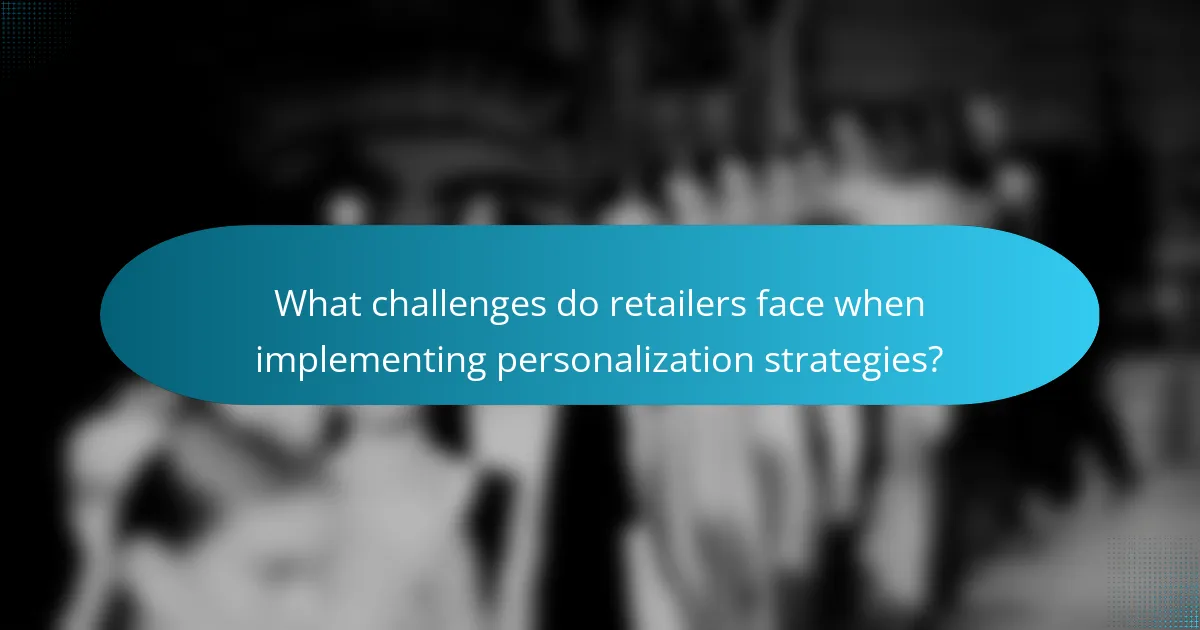
What is the importance of enhancing customer experience in UK fashion retail?
Enhancing customer experience is crucial in UK fashion retail. It drives customer loyalty and repeat purchases. Satisfied customers are more likely to recommend brands to others. Research shows that a positive shopping experience increases sales by up to 30%. In the competitive UK fashion market, differentiation through customer experience is essential. Brands that prioritize customer engagement see higher retention rates. Personalized experiences can lead to a significant increase in customer satisfaction. Overall, enhancing customer experience is a key strategy for success in UK fashion retail.
How does customer experience impact sales and brand loyalty?
Customer experience significantly impacts sales and brand loyalty. Positive experiences lead to increased customer satisfaction and repeat purchases. Research indicates that 86% of buyers are willing to pay more for a great customer experience. This enhances brand loyalty, as satisfied customers are more likely to recommend the brand. A study by Bain & Company found that a 5% increase in customer retention can boost profits by 25% to 95%. Therefore, improving customer experience directly correlates with higher sales and stronger brand loyalty.
What are the key factors that define customer experience in fashion retail?
The key factors that define customer experience in fashion retail include product quality, customer service, store atmosphere, and personalization. Product quality directly influences customer satisfaction and loyalty. High-quality items tend to lead to repeat purchases. Customer service is crucial; effective assistance can enhance the shopping experience. Store atmosphere, including layout and design, can significantly affect customer emotions and purchasing decisions. Personalization strategies, such as tailored recommendations, increase customer engagement. According to a study by McKinsey, personalized experiences can lead to a 10-15% increase in sales.
How do customer expectations vary in the UK fashion market?
Customer expectations in the UK fashion market vary significantly based on factors such as brand reputation, quality, and sustainability. Consumers expect high-quality materials and craftsmanship from established brands. They also seek unique styles that reflect their personal identity. Additionally, there is a rising demand for sustainable practices in fashion. Many customers prefer brands that prioritize eco-friendly materials and ethical labor practices. According to a 2022 survey by McKinsey, 67% of UK consumers consider sustainability when making purchases. Furthermore, personalization is increasingly important. Customers expect tailored shopping experiences, including personalized recommendations and targeted marketing. These variations in expectations highlight the need for brands to adapt their strategies to meet diverse consumer demands.
What role does personalization play in enhancing customer experience?
Personalization significantly enhances customer experience by tailoring interactions to individual preferences. It allows brands to provide relevant product recommendations based on past purchases. This targeted approach increases customer satisfaction and engagement. According to a study by Epsilon, 80% of consumers are more likely to make a purchase when brands offer personalized experiences. Personalization also builds customer loyalty by making shoppers feel valued and understood. In the UK fashion retail sector, personalized marketing strategies can lead to higher conversion rates. Brands that implement these strategies often see an increase in customer retention and sales.
How can personalization strategies be implemented in fashion retail?
Personalization strategies can be implemented in fashion retail through data-driven customer insights. Retailers can collect data from customer interactions, purchases, and preferences. This data allows for tailored recommendations and targeted marketing. For example, using algorithms, retailers can suggest items based on previous purchases. Additionally, personalized email campaigns can enhance customer engagement. According to a study by McKinsey, personalized experiences can increase customer loyalty and sales by up to 10%. Retailers can also utilize AI chatbots for personalized customer service. These strategies create a more relevant shopping experience, leading to higher customer satisfaction.
What technologies support personalization in the retail sector?
Artificial intelligence (AI) and machine learning (ML) are key technologies that support personalization in the retail sector. These technologies analyze customer data to predict preferences and behaviors. They enable retailers to offer tailored recommendations based on individual shopping habits. Data analytics platforms also play a crucial role by processing vast amounts of consumer information. Customer relationship management (CRM) systems help manage interactions and personalize marketing efforts. Additionally, chatbots enhance customer service by providing personalized responses in real-time. Augmented reality (AR) allows customers to visualize products in their own environment, improving engagement. Finally, mobile applications facilitate personalized shopping experiences through geolocation and push notifications.

What are the different personalization strategies used in UK fashion retail?
UK fashion retail employs several personalization strategies to enhance customer experience. One strategy is data-driven recommendations. Retailers analyze customer data to suggest products based on previous purchases. Another strategy is personalized email marketing. This involves sending tailored content to customers based on their shopping behavior.
Additionally, many retailers use website personalization. This customizes the online shopping experience by displaying products suited to individual preferences. Social media engagement also plays a role. Brands interact with customers through personalized content and targeted ads.
Loyalty programs are another effective strategy. They offer personalized rewards based on customer spending habits. Lastly, virtual fitting rooms provide personalized sizing recommendations. This reduces the likelihood of returns and enhances customer satisfaction.
These strategies are increasingly important as research shows that 80% of consumers are more likely to make a purchase when brands offer personalized experiences.
How do data analytics contribute to personalization efforts?
Data analytics significantly enhance personalization efforts by providing insights into customer behavior. They analyze data from various sources, such as purchase history and online interactions. This analysis helps retailers understand individual preferences and trends. For instance, 80% of consumers are more likely to make a purchase when brands offer personalized experiences. Data analytics enables targeted marketing campaigns tailored to specific customer segments. Retailers can recommend products based on past purchases, increasing conversion rates. Furthermore, analytics help in predicting future buying behaviors, allowing proactive engagement. Overall, data analytics drive effective personalization, leading to improved customer satisfaction and loyalty.
What types of customer data are most valuable for personalization?
Demographic data, behavioral data, and transaction history are the most valuable types of customer data for personalization. Demographic data includes age, gender, and location. This information helps brands tailor their marketing strategies. Behavioral data captures how customers interact with products and services. It includes website visits, clicks, and time spent on pages. Transaction history reveals past purchases and spending patterns. This data allows for targeted recommendations and promotions. According to a study by McKinsey, companies that effectively use customer data can increase sales by 10-20%. This demonstrates the significant impact of leveraging customer data for personalization.
How can retailers ensure data privacy while using customer information?
Retailers can ensure data privacy while using customer information by implementing strict data protection policies. They should employ encryption to safeguard sensitive data during transmission and storage. Regular audits of data handling processes can identify potential vulnerabilities. Retailers must also train employees on data privacy practices to minimize human error. Compliance with regulations like GDPR is essential for legal data usage. Transparent communication with customers about data usage builds trust. Additionally, retailers should offer customers control over their data preferences. This approach not only protects privacy but also enhances customer confidence in the brand.
What are the benefits of personalized shopping experiences for customers?
Personalized shopping experiences offer several benefits for customers. These experiences enhance customer satisfaction by tailoring product recommendations to individual preferences. Customers are more likely to find items that match their style and needs. This leads to increased engagement and loyalty towards brands.
Additionally, personalized experiences can reduce decision fatigue. When customers receive curated options, they spend less time searching. Studies show that 80% of consumers are more likely to purchase from brands that provide personalized experiences.
Moreover, personalized shopping can improve overall shopping efficiency. Customers can quickly locate products that interest them. This streamlined process often results in higher conversion rates for retailers.
In summary, personalized shopping experiences increase satisfaction, engagement, and efficiency for customers.
How does personalization enhance customer satisfaction and engagement?
Personalization enhances customer satisfaction and engagement by tailoring experiences to individual preferences. When customers receive customized recommendations, they feel understood and valued. According to a study by Epsilon, 80% of consumers are more likely to make a purchase when brands offer personalized experiences. Personalization can include targeted promotions, product suggestions, and personalized communication. This approach increases customer loyalty and repeat purchases. Engaging customers in a personalized manner fosters a deeper emotional connection with the brand. As a result, businesses that implement personalization strategies often see improved customer retention rates.
What impact does personalization have on customer retention rates?
Personalization significantly enhances customer retention rates. It creates a tailored shopping experience that meets individual preferences. According to a study by Epsilon, 80% of consumers are more likely to make a purchase when brands offer personalized experiences. Personalized recommendations can increase customer loyalty, leading to repeat purchases. Furthermore, businesses that implement personalization strategies see a 10-30% increase in retention rates. This indicates that personalization directly correlates with improved customer loyalty and satisfaction.

What challenges do retailers face when implementing personalization strategies?
Retailers face several challenges when implementing personalization strategies. Data privacy concerns are significant. Customers are increasingly aware of how their data is used. Compliance with regulations like GDPR adds complexity. Integrating data from multiple sources can be difficult. Retailers often struggle to create a unified customer profile. Limited technological infrastructure may hinder effective personalization. Additionally, a lack of skilled personnel can impede strategy execution. Balancing personalization with a seamless customer experience is crucial. Retailers must also measure the effectiveness of their strategies accurately.
How can fashion retailers overcome data management issues?
Fashion retailers can overcome data management issues by implementing integrated data management systems. These systems streamline data collection and storage across various platforms. By utilizing cloud-based solutions, retailers can enhance accessibility and collaboration. Automation tools can help in cleaning and organizing data efficiently. Real-time analytics enable timely decision-making and personalized marketing strategies. According to a study by McKinsey, companies that leverage data effectively can improve customer engagement by up to 20%. Adopting best practices in data governance ensures data quality and compliance. Investing in training for staff on data management tools can further enhance operational efficiency.
What are the common pitfalls in personalization strategies?
Common pitfalls in personalization strategies include data privacy concerns, over-segmentation, and lack of clear objectives. Data privacy concerns arise when customers feel their information is misused. Over-segmentation can lead to a fragmented approach, diluting the effectiveness of personalization. Lack of clear objectives results in unfocused strategies that do not meet customer needs. According to a 2022 survey by Econsultancy, 43% of marketers reported that data privacy regulations hinder their personalization efforts. This highlights the importance of balancing personalization with customer trust.
What best practices can be adopted for effective personalization in fashion retail?
Effective personalization in fashion retail can be achieved through several best practices. First, utilize data analytics to understand customer preferences and behaviors. This allows retailers to tailor recommendations based on past purchases and browsing history. Second, implement personalized marketing campaigns that address individual customer needs. For instance, targeted emails can significantly increase engagement rates. Third, offer customization options for products, enabling customers to create unique items. Research shows that 70% of consumers prefer brands that offer personalized experiences. Fourth, ensure a seamless omnichannel experience across online and offline platforms. Consistency in messaging enhances customer trust and loyalty. Lastly, gather customer feedback regularly to refine personalization strategies. This approach keeps the offerings relevant and aligned with customer expectations.
How can retailers measure the success of their personalization efforts?
Retailers can measure the success of their personalization efforts through key performance indicators (KPIs). These KPIs include customer engagement metrics, conversion rates, and average order value. Customer engagement can be assessed by tracking interactions with personalized content. Conversion rates indicate how well personalization drives purchases. Average order value reflects the effectiveness of personalized recommendations.
Additionally, customer retention rates provide insight into long-term success. Surveys and feedback can also gauge customer satisfaction with personalized experiences. A study by McKinsey found that personalization can lead to a 10-30% increase in revenue. These metrics collectively offer a comprehensive view of personalization effectiveness in retail.
What steps can be taken to continuously improve personalization strategies?
To continuously improve personalization strategies, retailers should analyze customer data regularly. This involves collecting and evaluating data on customer preferences and behaviors. Utilizing advanced analytics tools can help identify trends and insights. Retailers should also segment their audience based on these insights. Tailoring marketing messages to each segment enhances relevance. Implementing A/B testing allows retailers to refine their strategies based on performance metrics. Gathering customer feedback through surveys can provide direct insights into preferences. Finally, staying updated with technological advancements ensures the use of the best tools for personalization.
What are some practical tips for enhancing customer experience through personalization?
Utilizing customer data is essential for enhancing customer experience through personalization. Collect and analyze data on customer preferences and behaviors. Use this information to tailor product recommendations. Implement personalized marketing messages based on customer interests. Offer customized promotions that align with individual shopping habits. Create a seamless omnichannel experience that recognizes customers across platforms. Encourage feedback to refine personalization efforts continuously. Employ AI tools to predict customer needs and preferences effectively. These strategies can lead to increased customer satisfaction and loyalty in retail settings.
The main entity of this article is customer experience in UK fashion retail, with a focus on personalization strategies. The article outlines the importance of enhancing customer experience to drive loyalty and sales, highlighting how positive shopping experiences can increase profits significantly. It discusses key factors defining customer experience, including product quality, customer service, and personalization, while also addressing the varying customer expectations in the UK market. Additionally, it explores the role of data analytics in personalization efforts, the technologies supporting these strategies, and practical tips for retailers to improve customer engagement and satisfaction.



